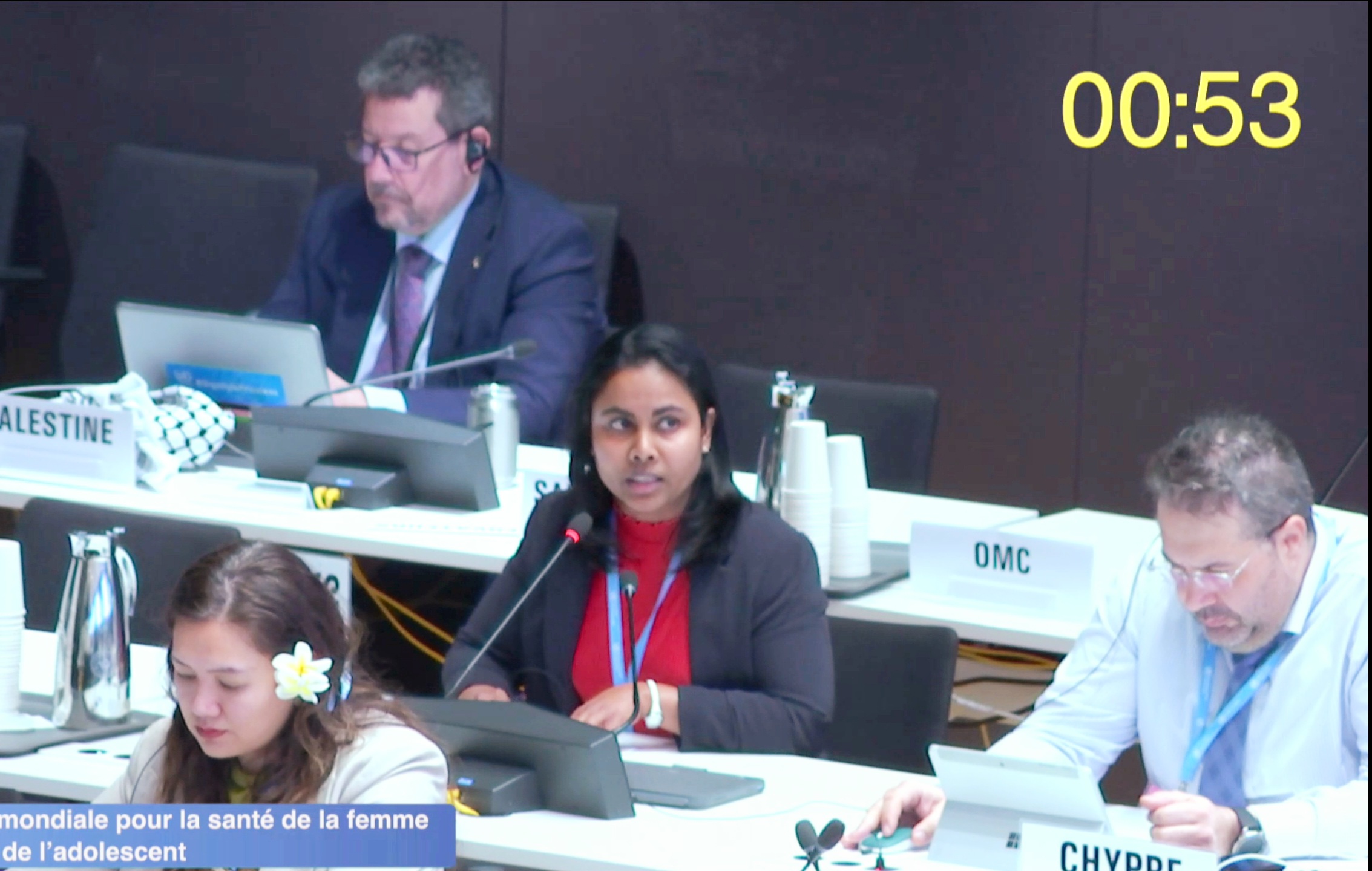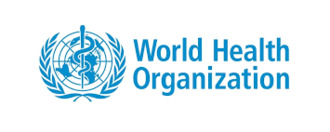156th session of Executive Board
Agenda item 13 - Global Traditional Medicine Strategy 2025-2034
statement by Sri Lanka

Thank you chair,
Sri Lanka welcomes the report by the Director General on the draft global traditional medicine strategy 2025-2034.
Sri Lanka appreciates the WHO, particularly the Traditional, Complementary and Integrative Medicine units for their role and tireless efforts in preparing the draft Global Traditional Medicine Strategy 2025-2034 and commends India’s leadership for bringing together the Global Friends of Traditional Medicine for convergence of ideas on this important area.
Sri Lanka is committed to promoting traditional medicine through the national traditional medicine policy Sri Lanka 2024-2034 which was launched in August 2024 and recognizes the policy thrust areas; Providing quality service delivery, Management of resources, Strong collaboration, Increasing the economic value of traditional Medicine, Protect the traditional inheritance of Indigenous and other communities, Large scale cultivation of medicinal plants for commercial use, and Manufacturing of traditional medicine products.
Sri Lanka is dedicated to improve the quality and safety of traditional medicine through its regulatory framework and safety monitoring system which is aligned with the Global strategic directions.
Chair,
Sri Lanka welcomes the WHO’s Global Traditional Medicine Strategy 2025-2034 and hopes that it will be endorsed by the Executive Board.
Further, Sri Lanka looks forward to engaging with WHO on potential assistance including through the Global Traditional Medicine in promoting the Global Traditional Medicine Strategy and capacity-building efforts.
Thank you
156th Session of Executive Board
Agenda item 14 - Global Strategy for Women’s Children’s and Adolescents’ Health
Statement by Sri Lanka

Thank you Chair
Sri Lanka is pleased to cosponsor the resolution on regulating the digital marketing of breast milk substitutes and appreciates Brazil and Mexico for leading the process.
Breastfeeding and adequate and safe infant and young child feeding practices promote optimal health and development of a child. Sri Lanka is strongly committed to follow the international Code of Marketing of Breast milk Substitutes which was adopted in 1981.
The revised national nutrition policy of Sri Lanka highlights the need for strong legislation to control unethical marketing of food and beverages, emphasizing on mothers, infant and young children’s nutrition. With the purpose of regulating the marketing of foods and nonalcoholic beverages to children, a nutrition profile has also been developed by Sri Lanka and new labeling and advertising regulations under the Food Act are implemented from January 2025 to safeguard children from unethical marketing.
Mr. Chair,
Promoting infant formula, products for young children, bottles and teats through digital marketing has become an emerging challenge worldwide. Increasing exposure of parents to these products and their misleading representation as a safe option equal to or better than breast milk, may affect infant and young child feeding practices.
In the wake of digital marketing, Sri Lanka stresses the importance of expanding the scope of the code of marketing of breast milk substitutes to meet the present concerns.
Sri Lanka joins with others and requests the Executive Board to endorse this important resolution by consensus, with the view to safeguarding infant and young children nutrition.
Thank you.
Agenda Item 14.3 - Global strategy for tuberculosis: research and innovation
Agenda Item 14.5 – Immunization Agenda 2030
Agenda Item 15 – Human Resources for Health
Agenda Item 17.3 -Poliomyelitis
Agenda Item 18.1- Maternal, Infant and young child nutrition & Agenda Item 18.2 - WHO Global Strategy for food Safety
Addressing the WHO Metal Health Forum held in Geneva on 14 October 2019, Sri Lanka updated the global healthcare community, which comprised policy experts and representatives of Member States and international organisations, on progress achieved in advancing mental health, providing healthcare support and improving the working environment that could foster good health and wellbeing among the Sri Lankan population.
The intervention made by Ambassador A.L.A. Azeez, Permanent Representative of Sri Lanka in Geneva at the Forum dealt with three main points namely, the need for mental healthcare and delivery of assistance to be holistic; the importance of an inclusive approach that ensured availability of mental healthcare coverage throughout the entire cycle of vulnerability; and the sustainment of a supportive environment that assured security, empathy and care for at-risk individuals.

“Preventing the threat of use of biological agents is a key priority for Sri Lanka”, stressed Sri Lanka Permanent Representative in Geneva Ambassador Azeez, addressing the International Seminar convened by the Geneva Centre for Security Policy (GCSP) and the Implementation Support Unit (ISU) of the Biological Weapons Convention (BWC) on 'the importance of disease surveillance and alert mechanisms: lessons for the BWC’ held on 20 November 2018.
The Seminar focused on the operationalization of Article 7 of the Biological Weapons Convention (BWC), which accentuated the importance of technical assistance and international cooperation, to respond effectively to epidemics involving bio-agents.
Representing Sri Lanka at this health - security interface forum, Ambassador Azeez explained the existing disease surveillance mechanism in Sri Lanka, which comprised a wide range of medical and administrative networks including at national, provincial, and district levels. He also drew attention to the role and contribution of hospitals and primary health care units in addressing this challenge efficaciously as well as to laws and policies in place in this context. “Continuing work on strengthening the existing system involved further updating of policies and programmes to empower the National Disease Surveillance System as part of an integrated health-security mechanism”, he added.

The WHO Global Coordination Mechanism for the prevention and control of Non-Communicable Diseases (GCM/NCD) concluded its General Meeting in Geneva on 6 November 2018. The two- day Conference brought together delegates and activist from Member States, UN organizations, and non-State Actors. The participants along with other stakeholders from the private sector, philanthropic foundations, and academic institutions, discussed means and modalities of strengthening the implementation of the SDG Agenda- 2030 and follow-up on the Political Declaration adopted at the Third High-level Meeting of the General Assembly in September 2018 on the prevention and control of NCDs.
Under the co-chairmanship of Ambassador Azeez, Permanent Representative of Sri Lanka, and the Representative of the host country, Switzerland, the Meeting facilitated stakeholder interactions at policy and political levels, regarding enhancing the effective coordination of prevention and control-related activities. The continued importance of multidisciplinary and multisectoral engagement, aimed to promote implementation of the WHO Global NCD Action Plan 2013-2020, and SDG 3.4 - NCD-related targets, was emphasized as was the need for building upon the existing networks of stakeholders bringing in industries, research institutions and local government bodies. A primary objective of the GCM was to assess and renew commitments that had emerged from the recently held UN High-level Meeting of the General Assembly, and its preceding High-level Conferences in 2011 and 2014.

Several delegations congratulated Dr. Rajitha Senaratne, Minister of Health, Nutrition, and Indigenous Medicine of Sri Lanka on being elected as a Vice-Chair of the Executive Board (EB) of the World Health Organization (WHO) for a term of one year during the 143rd session of the EB/WHO held in Geneva from 28-29 May 2018. Sri Lanka currently serves as a Member of the Executive Board, elected for a term of three years in May 2017.
Members of the South East Asia Region (SEAR) unanimously nominated Dr. Rajitha Senaratne to the post of Vice-Chair from SEAR.
Dr. Senaratne thanking the Executive Board on his election, emphasized the necessity of learning from the experiences of peers, while sharing Sri Lanka’s experiences with them towards achieving Universal Health Coverage, a goal agreed in the UN Development Agenda 2030.
During his participation of the 71st session of the World Health Assembly (WHA71) and the 143rd session of the Executive Board meeting (EB143) of the WHO, Sri Lanka received special compliments as a country which has taken progressive measures towards realization of SDG 3-Universal Health Coverage and launched bold initiatives on control of NCDs and access to affordable medicines.
Minister Senaratne had been invited to address the Panel Discussion – ‘Saving lives, Spending less: A Strategic Response to Non-Communicable Diseases (NCDs)’ jointly organized by the WHO and the WHO Goodwill Ambassador for NCDs Mr. Michael Bloomberg, on the sidelines of WHA71 in recognition of Sri Lanka’s achievements in the health care sector under his stewardship.
Permanent Mission of Sri Lanka
Geneva
30 May 2018
